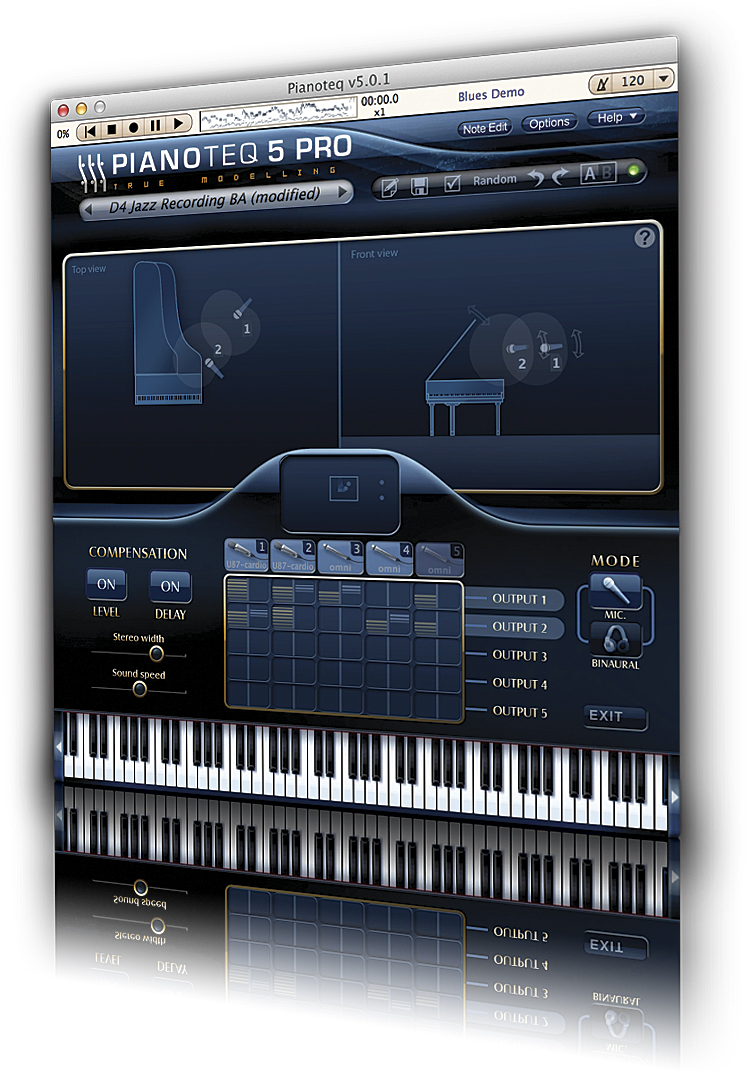

PL/1 was a horror show, mainly because it would try to correct compilation errors on the fly and would produce cascading errors that were worse.
#Pianoteq 5 large room effect driver#
It was good for device driver type stuff because you could specify the number of bits used in each field in a record and it would handle range checking.
#Pianoteq 5 large room effect code#
I used Ada on an air traffic control system and even wrote bit level code in it. In the field, you don't get to do survey classes in languages. Me too but that changes when you've been in the industry for a while. I should have stayed and enjoyed the ride, but hindsight = 20/20. After college, I had on my resume languages as varied as Ada, Lisp, SmallTalk, C, PL/0, BASIC, AWK, SNOBOL4, Pascal, Modula-2, Fortran, multiple shellscripts, multiple assembly languages, and the list went on and on. You could legitimately learn a dozen languages and claim some degree of fluency in them. Now, it seems like you have to be an expert in the language, and a dozen frameworks, to get the position.Ĭollege was great for that stuff. I had never written a single line of Smalltalk before my first Smalltalk job. You know, in the old days, managers would give job candidates a chance even if they had never written a single line in the language that was being used.

Now, it seems like you have to be an expert in the language, and a dozen frameworks, to get the position. Just do pure functional programming and have fewer bugs. That's why these days, I say, give up the crutches and make a clean break. Then a few months into the project, I discovered they were using Erlang as an imperative language. I have run into some weird incompatibilities between Swift and Objective C, but I can't quite remember the specifics at the moment.Ībout 13 years ago, I did hire a few programmers to program a network monitoring system in Erlang, which is also functional-lite.

I don't think ObjC is going anywhere because I think the underlying representations in the LLVM layer are the same for both Swift and Objective C. I just keep developing in ObjC in those cases. I generally don't advise injecting large amounts of Swift into massive ObjC code bases. Now I'm dealing with the young Turks mixing and matching large amounts of swift into a massive objc code base and just thinking this whole malarkey is too much, but here I am.Īll code becomes legacy code at some point, lol. Eight years ago my brain was finding C++ STL+Boost too much and happily switched to objc late in the game. But at the same time there are massive legacy code bases on older versions. I'm so with you there, though C++ has made significant recent improvements. Maybe I could find my way back to the utopia of LISP but it has been decades now, and who would hire me for that? These languages are forced upon me, you know, I don't get to choose. Yes, I know, it introduces functional concepts but it is not purely functional. Swift is not purely a functional language.

Of course, a functional language like Swift owes much to LISP, the grandfather of functional languages. That's why these days, I say, give up the training wheels and make a clean break. But I can be an advocate because I don't have to make a living programming.Ībout 13 years ago, I did hire a few programmers to program a network monitoring system in Erlang, which is also functional-lite. Now I'm dealing with the young Turks mixing and matching large amounts of swift into a massive objc code base and just thinking this whole malarkey is too much, but here I am. Few things are as bad as C++.I'm so with you there, though C++ has made significant recent improvements. It is functional as much as C++ is OOPS Yes, I know, it introduces functional concepts but it is not purely functional.


 0 kommentar(er)
0 kommentar(er)
